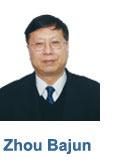Ever since the Sydney Olympic Games in 2000, it has become a tradition for the Olympic medalists of the national team to visit Hong Kong after the four-year sports grand event. The tradition continues this year for the sixth time, with 29 mainland athletes who did well in the Tokyo Olympics visiting Hong Kong to showcase their talent in front of their compatriots. Their trip bears much more significance than the previous five visits.
Unlike the past five Games, the Tokyo Olympics were held amid the gloom of a health crisis caused by a pandemic, and quarantine has become the international norm for incoming visitors as part of the measures to contain the viral spread. Visiting athletes and representatives from the national team, however, are exempted from quarantine confinement in view of the successful anti-pandemic efforts on the Chinese mainland. This is encouraging for Hong Kong residents as the HKSAR government is working out a plan for reopening the border checkpoints.

Equally important is the evolving political backdrop that characterizes the current visit. While most people won't argue against the notion that sports should not be a subject of political disputes, certain countries in the West have been rallying support for boycotting the Beijing Winter Olympics in their new round of anti-China campaign. Unwarranted attacks against China have failed to put pressure on China's national team, which withstood anti-China rhetoric and put up spectacular achievements in the Tokyo Olympics. With political hostility flying in the face of sportsmanship promoted by the Olympics Games, the local enthusiasm for the national team performance symbolizes the support of the Hong Kong community for the Beijing Winter Olympics next year.
Finally, the scheduled visit came with the announcement by the central government that Hong Kong will co-host the 2025 National Games with Guangdong province and Macao. With this grand event in the pipeline, the mainland athletes' Hong Kong trip will further promote exchanges in the area of sport activities between the two sides, which is conducive to strengthening ties and integration between the two sides.
The mainland athletes' visit came with the announcement by the central government that HK will co-host the 2025 National Games with Guangdong province and Macao. With this grand event in the pipeline, the athletes' HK trip will further promote exchanges in the area of sport activities between the two sides, which is conducive to strengthening ties and integration between the two sides
Over the years, the National Games have been the main platform for sports exchanges between the Hong Kong Special Administrative Region and the mainland. Co-hosting the 2025 National Games will raise the exchange, cooperation and collaboration among the three sides to a new level, promote the alignment of rules and systems, and foster a sense of national identity among Hong Kong residents.
ALSO READ: Mainland Olympians receive warm welcome in HKSAR
The alignment will occur in both the upstream and downstream sports-related industries and services, in the form of technologies and regulations. When the alignment process is complete, it will expand the entire supply chain and service industries.
More importantly, co-hosting the 2025 National Games will foster the sense of a shared future for mankind among residents of the three places. Imagine if residents of Hong Kong, Macao or Guangdong have the chance to witness the construction of venues and event planning in their own neighborhoods - it will help engender a sense of communion among residents of the three places.
Speaking of rules-and-systems alignment with the mainland cities in the Guangdong-Hong Kong-Macao Greater Bay Area, Hong Kong residents should be aware that they are lagging behind Macao in this endeavor because of the unremitting pandemic and the lack of understanding of the significance of the GBA. Unlike Macao, Hong Kong's alignment and integration with the mainland side has been hindered by its British colonial legacy of "double obstacles" - the physical border and ideological barrier. These obstacles must be overcome if Hong Kong desires to co-organize the National Games with flying colors.
While the mainland athletes will stay in Hong Kong for only three days, the HKSAR government should take this opportunity and leverage the co-hosting of the 2025 National Games to raise public enthusiasm for cross-border interaction, which will in turn be conducive to promote Hong Kong's participation in and integration into the GBA.
In collaborating with the Guangdong authorities for the 2025 National Games, the current HKSAR administration and the next shall ensure a seamless alignment in the preparation of the event. To this end, the project team should be maintained basically unchanged through the next administration for the sake of ensuring the smoothness and effectiveness of its work. The agencies of Hong Kong and Guangdong tasked with the preparation work of the National Games should also look over the border when planning for the event.
Only national rules and regulations will apply to the National Games, Hong Kong shall make the necessary adjustments to its relevant rules and regulations if any inconsistencies exist.
READ MORE: Olympians' visit expected to ignite HK's sports enthusiasm
Hong Kong should bear in mind that it must take heed of the instruction, guidance and coordinative effort of the central authorities in the process of co-hosting the National Games.
The views do not necessarily reflect those of China Daily.


